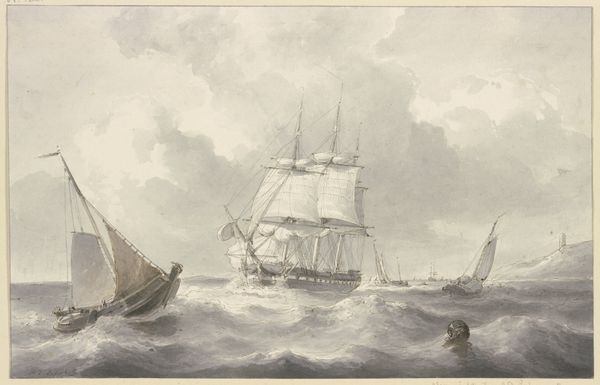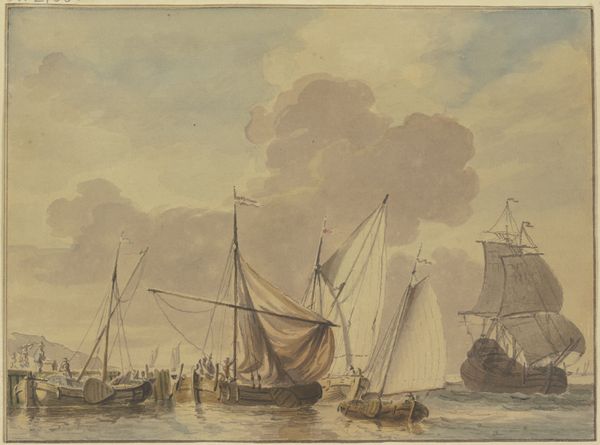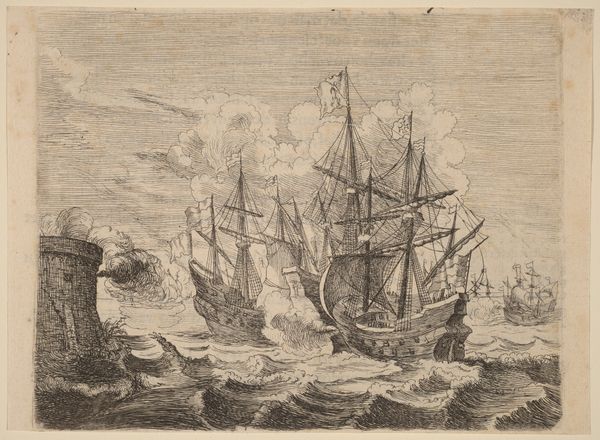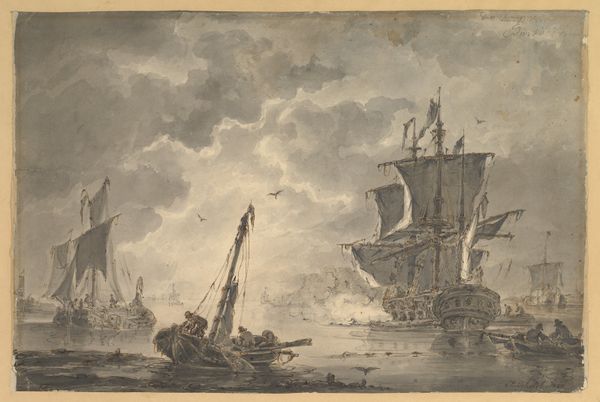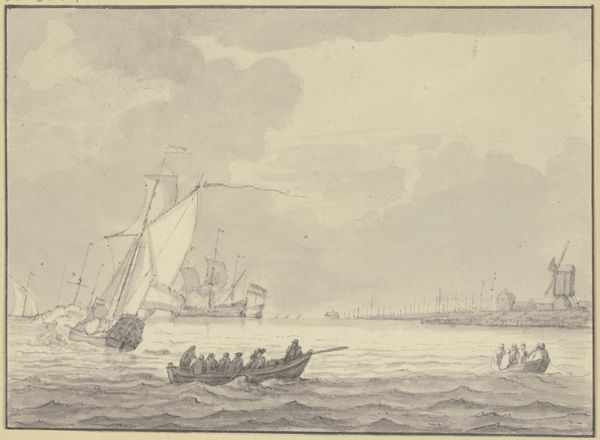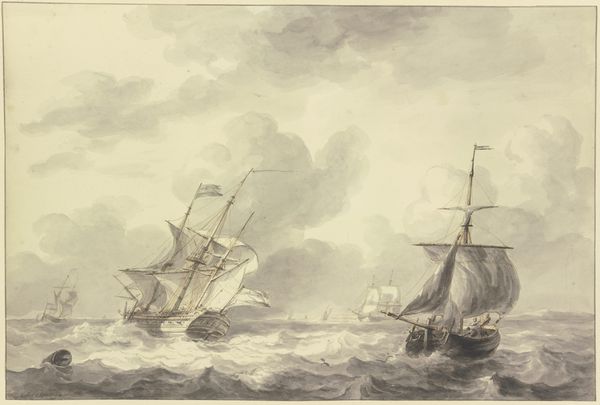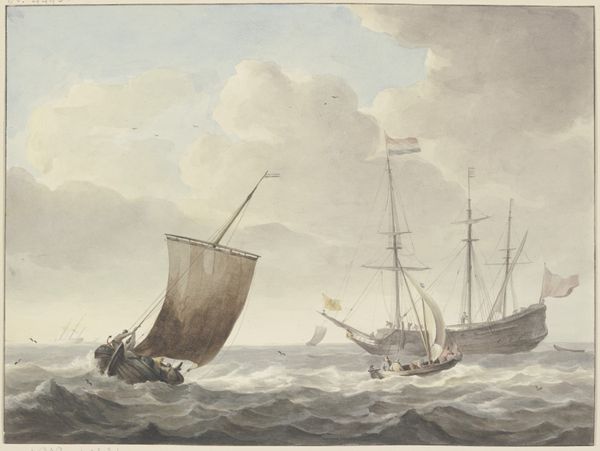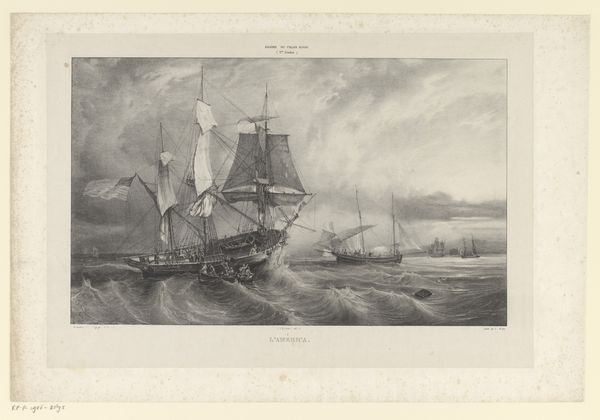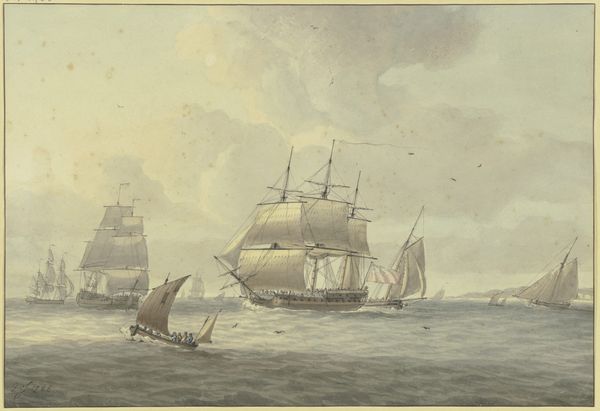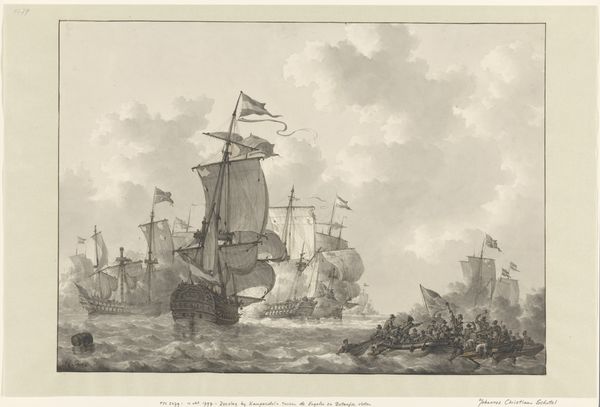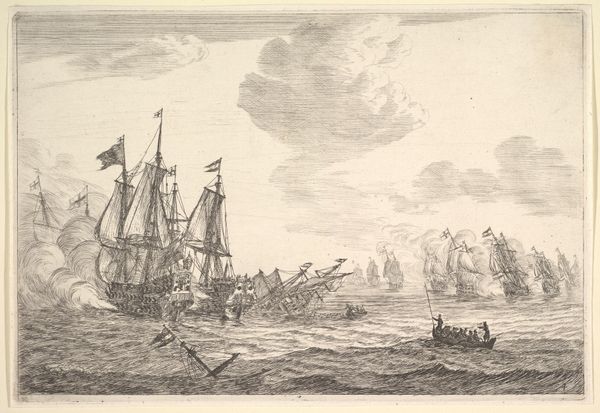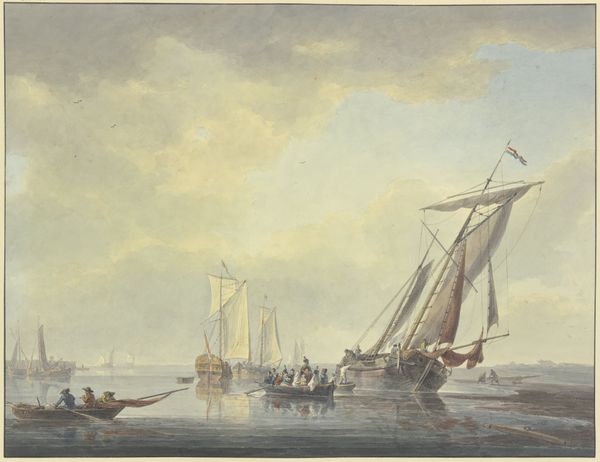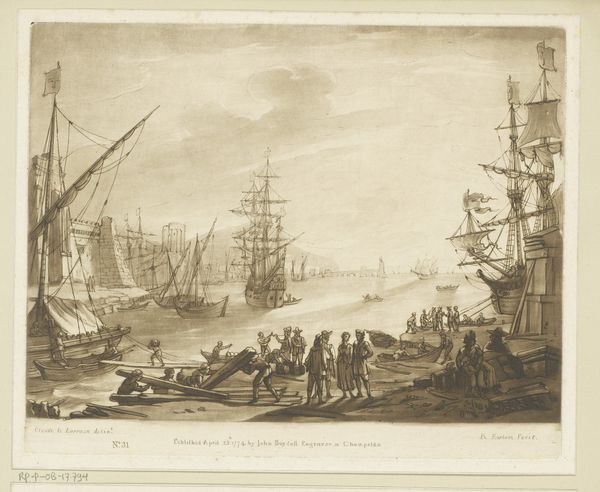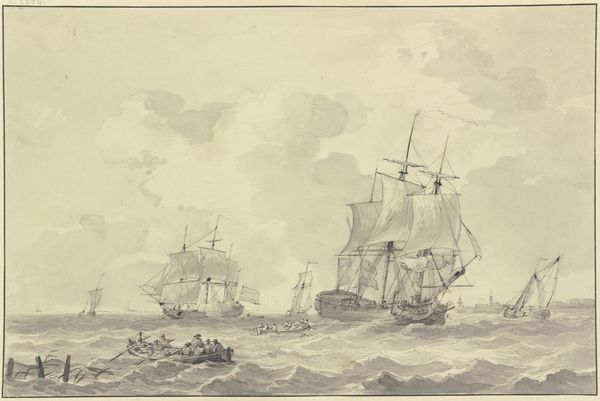
painting, watercolor
#
painting
#
landscape
#
watercolor
#
romanticism
#
cityscape
#
genre-painting
#
watercolor
Dimensions: height 321 mm, width 437 mm
Copyright: Rijks Museum: Open Domain
Editor: This is "Zeilschepen op woelig water," or "Sailing Ships on Rough Water," a watercolor by Johannes Christiaan Schotel from 1816, currently at the Rijksmuseum. The dramatic waves really give it a sense of energy. What strikes you most about this piece? Curator: The tumultuous sea and the struggle of those vessels against it. We must look at this through the lens of the Netherlands’ fraught relationship with the sea and maritime power, and their legacies in trade and colonialism. How does this resonate when thinking about identity and national narrative? Editor: So it's not just a pretty seascape then? Curator: Never just that. The rough water wasn’t merely an aesthetic choice. Consider this piece as situated in post-Napoleonic Netherlands: what’s at stake politically and socially, and how does this image subtly portray themes of national resilience or the anxieties around maintaining maritime power in a changing world? Who benefits from such a portrayal? Editor: That makes me see it very differently. I was just focused on the visual drama. Curator: The drama is certainly intended. Schotel highlights the sheer force of nature against human endeavors. Notice the tiny figures on the shore -- seemingly helpless onlookers. Their vulnerability underscores the larger narrative about control, and lack thereof, which could translate to broader discussions about socio-economic factors or political unrest after the Napoleonic wars. What societal power structures might this image be commenting on? Editor: Wow, I hadn't considered any of that. I see a painting of boats, and you see… a whole history. Curator: It’s all there, subtly coded within the art. Considering the context adds so many layers to the work. Hopefully, you’ll leave seeing that what’s missing from an image – whose stories aren’t represented, for example – matters just as much. Editor: Definitely! Thanks; I have a lot to think about now.
Comments
No comments
Be the first to comment and join the conversation on the ultimate creative platform.
